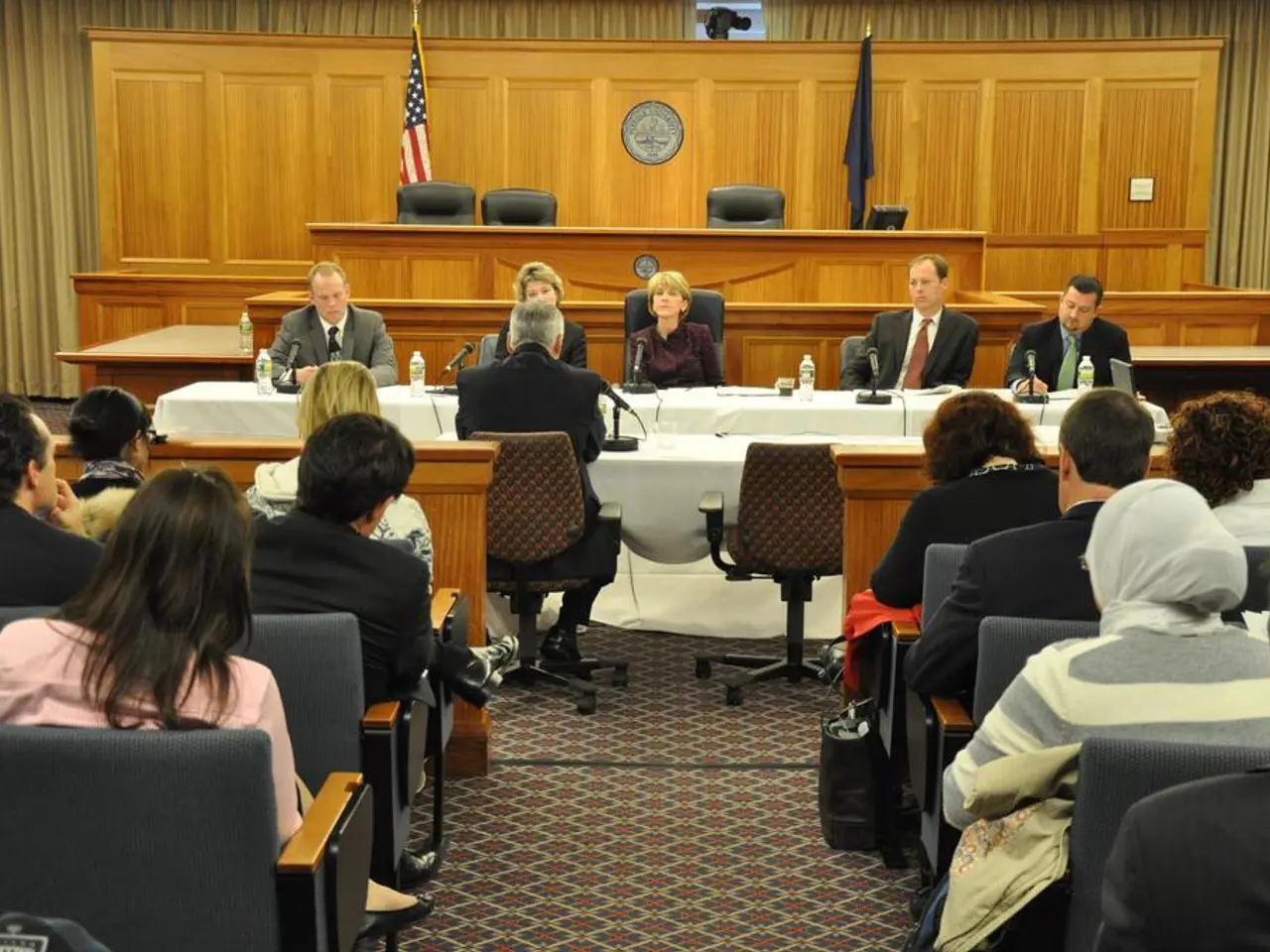House Receives GENIUS Act Post 68-30 Senate Vote - However, Crypto Reform now presents a fresh complication
The GENIUS Act, a groundbreaking bill aimed at regulating stablecoins, has made a significant stride in the United States Senate, with a bipartisan vote of 68-30 on June 17, 2025. However, its journey through the House of Representatives is still uncertain, as the bill is currently "held at the desk," indicating that House leadership is deliberating next steps.
The House leadership, including GOP Majority Whip Tom Emmer, is advocating for merging the GENIUS Act with the CLARITY Act. The CLARITY Act, often referred to as the crypto industry's long-awaited regulatory backbone, seeks to define digital assets as either commodities or securities, while the GENIUS Act, if merged, would provide a framework for regulating stablecoins.
The merger of these two bills would create a unified digital asset regulatory framework but could potentially lead to a significant delay. The Senate would need to approve the modified version, which could trigger a legislative back-and-forth ("ping-pong") that could delay passage well into the later part of 2025 or beyond.
The potential delay in the passage of the GENIUS Act could have significant implications. A delay could weaken U.S. competitiveness against jurisdictions like the EU, where MiCA rules are already being implemented. Moreover, unregulated growth of offshore stablecoins may continue to sidestep U.S. consumer protection goals.
The urgency to pass the GENIUS Act is emphasized by former President Donald Trump's team, who are urging for the immediate passage of the bill without changes. The message from Trump's team underscores the importance of implementing a stablecoin framework to boost U.S. competitiveness in digital finance.
The path to final passage for the House version of the CLARITY Act is still murky, and internal differences and the desire to maintain the House's own stablecoin legislation variant could influence outcomes. Despite these challenges, GOP Majority Whip Tom Emmer expects the merged bill to have a path in the House of Representatives.
Market observers are paying keen attention to how this political gridlock might affect U.S. stablecoin suppliers such as Circle (USDC), Paxos, and Tether (USDT). The outcome of the merger decision and the subsequent passage of the GENIUS Act could shape the future of the digital asset industry in the United States.
[1] Source: Roll Call [2] Source: The Hill [3] Source: CoinDesk [4] Source: Politico
- The merger of the GENIUS Act with the CLARITY Act, if successful, will create a unified regulatory framework for digital assets, including stablecoins, in the United States.
- The potential delay in passing the GENIUS Act could weaken U.S. competitiveness in digital finance, especially compared to jurisdictions like the EU that have already implemented regulations such as MiCA.
- Market observers are closely monitoring the political gridlock surrounding the passing of the House version of the CLARITY Act and its potential impact on stablecoin suppliers such as Circle (USDC), Paxos, and Tether (USDT).
- Former President Donald Trump's team has urged for the immediate passage of the GENIUS Act, emphasizing the importance of implementing a stablecoin framework to boost U.S. competitiveness in the digital finance industry.




